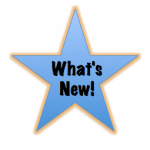What’s New
CompetencyWorks Blog

Math, writing, and executive function! Learn about the search for new breakthroughs in The Gates Foundation and Chan Zuckerberg Initiative Want Your Ideas On The Future Of Education.
US Department of Education is highlighting personalized learning in the Education Innovation and Research grants.
Must Read: I’ve just read the following two papers and think they are must reads! We all need to know the research on learning sciences. Seriously, everyone in the education field, from a person designing a new application to the U.S. Secretary of Education, needs to dive into the learning sciences if they haven’t already. Two relatively recent papers are really helpful as they summarize the research across fields:
- Malleability, Plasticity, and Individuality: How Children Learn and Develop in Context and
- Drivers of Human Development: How Relationships and Context Shape Learning and Development
These aren’t simple papers, so I suggest engaging colleagues to read and discuss the sections of the papers that relate the most directly to you and your work. We need similar papers that summarize what we know about instruction in each of the content areas, as well.
What’s Happening in the States
Local media is a great way to get a sense of what is going on in a region. It’s a clue that grading has been introduced too early when there are letters to the editor in support of A-F grading. However, more intentional strategies for using local media can help inform the community about the problems of A-F grading (remember, there is no research that supports that it is effective except for perhaps letting people know how their kids are doing compared to other kids). See for example this article from Columbia Chronicle in IL: Accumulating points or knowledge: Do letter grades miss the mark in assessment? Another indicator of communities engaged in re-thinking the traditional system are articles about college admissions, as in Peoples: new grades don’t affect acceptance; So far, transcripts OK for college applications in Stowe, VT.
Colorado
Lucile Erwin Middle School is highlighted in NGLC’s article Developing Critical, Creative, and Reflective Thinkers at Lucile Erwin Middle School.
Illinois
Urbana High School is moving toward competency-based education.
Maine
The local news is still full of support for and concerns about proficiency-based learning. It’s worth reading if you want to be prepared for the types of concerns that may come up in your community when you introduce competency-based education. Here are a few examples:
Letter to the editor: Maintain student graduation standards.
Letter: Bring traditional grading, teaching back to YHS
Maine Voices: Proficiency-based learning opponents should get out of the way of education
Colleges support use of proficiency-based learning
Michigan
Alpena Public Schools recently received a $50,000 grant from the state to begin implementing competency-based learning in the classrooms.
New Mexico
Policymakers in New Mexico need to read the research on learning sciences and retention. They are continuing to push the third grade retention policy for students who haven’t demonstrated proficiency on third grade state assessments, designed for accountability purposes. What if a student is proficient at every other academic domain? Why would you retain rather than create individualized plans and make sure they get more personalized attention…instead of sitting through the same material again in all the domains?
North Carolina
The Regional Education Laboratory Southeast is supporting a Research Alliance of K-12 and higher education representatives to develop best practices in competency-based education. The alliance, called Measuring Success Through Competency-Based Learning, convened districts and schools advancing toward competency-based education earlier this year. They are also working with the Johnston County Public School District in their transition to personalized learning district-wide. On their radar is to engage admissions officers from colleges and universities to talk about transcripts and the admissions process for students that have attended competency-based schools. Contact Laura Knapp at [email protected] for more information.
Insights into Practice
- I read two helpful articles on equity that you may find valuable: Culturally Responsive Teaching in a Mastery Learning Environmentand Choosing personalized learning as a strategy for educational equity.
- The Role of the Teacher in a Personalized, Competency-Based Classroom from KnowledgeWorks answers frequently asked questions.
- McComb’s Superintendent Dr. Ellis discusses his strategies in Encouraging innovation within a strict accountability system requires teamwork and strategy. See CompetencyWorks series on McComb School District in MS.
- In the article Structure Helps Promote Student Agency, the authors explore the relationship of student agency and flex time needed for students to access the support they need to be successful.
- Tom Vander Ark explores how Del Lago Academy is creating strong relationships between business partners and high schools to support badging efforts.
- In the article Why Principals Are Embracing Personalized Learning, the authors make the connection about how technology isn’t personalized education — it enables it by creating opportunities to work more closely with students.
New Resources
- The Aspen Institute National Commission on Social, Emotional, and Academic Development has launched a new blog through Education Week: “Learning is Social and Emotional.”
- Listen to Clint Smith’s Ted Talk on Resilience.
- KnowledgeWorks has simplified SEL into three core skills: emotional regulation, empathy and perspecive taking and deep self-knowledge.
- Registration is live for Boston Day and Evening Academy’s REAL (July 9-12, 2018) and 2REAL (July 16-19, 2018) summer institutes. Visit The REAL Institute for more information and to register your group today!
In wrapping up this list of What’s New, I’ll suggest reading Rick Hess’s Personalized Learning and Ensuring That Students Learn the Tedious Stuff. It is a helpful “critical friends” piece that we should all stop and reflect upon. We are going to need to make sure that students learn their foundational skills, even if they enter 9th grade classrooms with 4th grade skills, as well as engage in developing those powerful transferable skills (or the 4 Cs if you prefer).